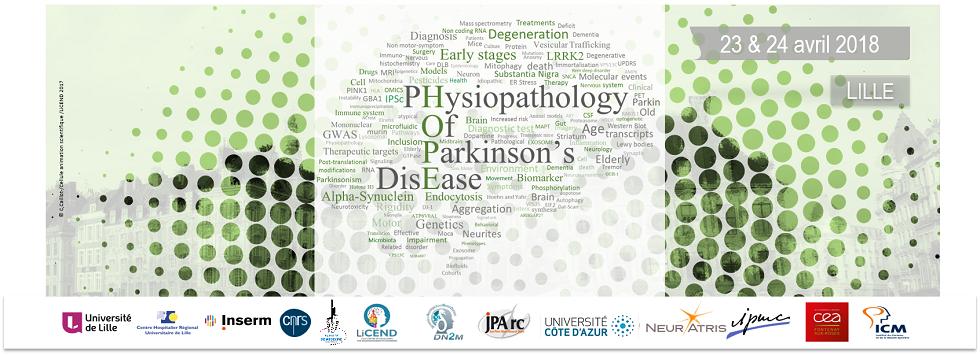Antimuscarinic drugs were the first widely accepted treatment of Parkinson's disease (PD), before the dopamine replacement therapy with L-DOPA. They recently regained interest in the treatment of neurodegenerative diseases. We thus examined the involvement of cholinergic interneurons (CINs) and muscarinic receptors of the striatum in the expression of motor, emotional and cognitive impairment in mouse models of PD. We first found that the reversible and transient optogenetic photoinhibition of striatal CINs in transgenic mice reduces motor impairment in a model of late phase of PD. This beneficial effect on motor akinesia and postural assymetry were reproduced by M1 or M4 muscarinic cholinergic receptor (mAChRs) blockade of the dorsal striatum with selective antagonists (telenzepine and tropicamide, respectively). To decipher the mechanisms of cholinergic action on striatal M4 mAChRs, additional experiments were performed with mutant mice that lack M4 mAChRs only in D1 dopamine receptor-expressing cells. The antiparkinsonian effects of tropicamide were almost completely abolished in these mutant lesioned mice, suggesting that postsynaptic M4 mAChRs expressed on direct medium spiny neurons mediate the antiakinetic action of tropicamide. As cognitive and neuropsychiatric symptoms are increasingly recognized in PD, we then examined the role of striatal CINs in anxiety and short-term memory deficits in a mice model of early PD. Decrease of striatal CINs activity by eNpHR photoinhibition or M1 receptor blockade reduces anxiety in the elevated plus maze, improves social recognition and spatial memory in partially lesioned mice. The present results show that altered cholinergic transmission via M1 and M4 mAChRs of the dorsal striatum plays a pivotal role in the occurrence of motor and non-motor symptoms in PD.
This work is supported by ANR, France Parkinson, CNRS and AMU ; D1-M4-KO mice were provided by J. Wess (Bethesda, USA).

 PDF version
PDF version
